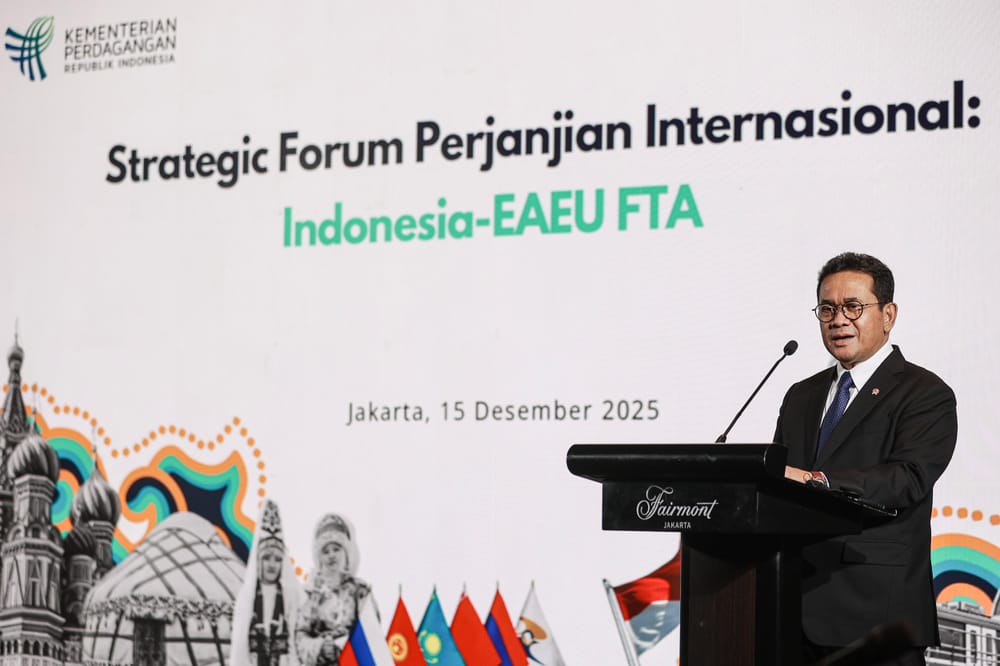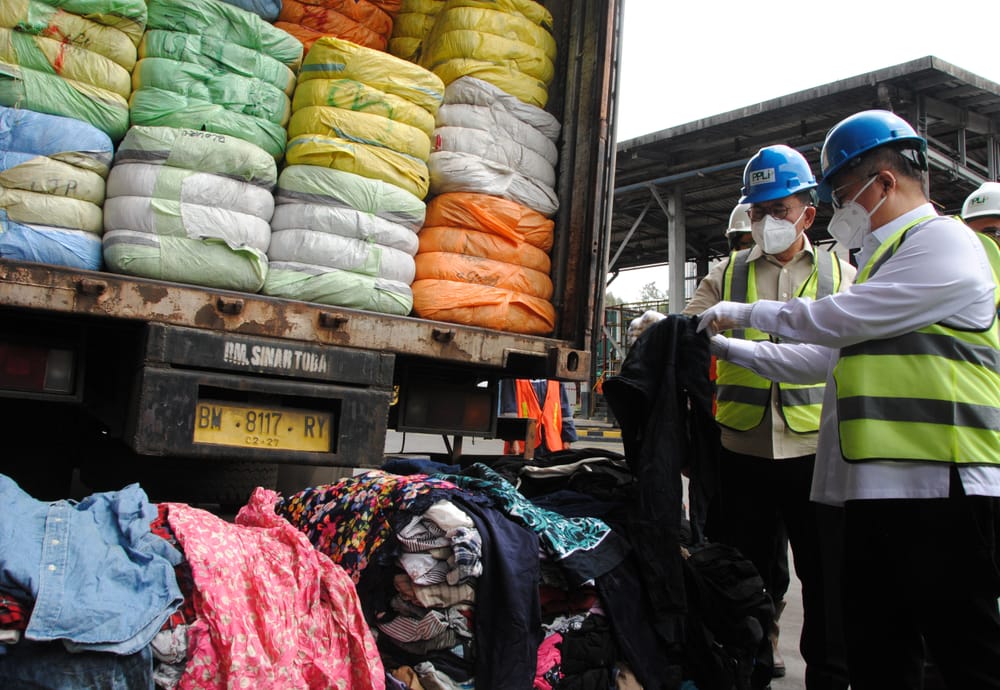Indonesia is currently exploring opportunities for developing halal industry cooperation with Kyrgyzstan, opening new export breakthroughs to non-traditional countries.
Previously, cooperation was carried out by the Halal Industry Center of the Ministry of Industry and the Ministry of Economy and Trade of the Kyrgyz Republic on the sidelines of Halal Indo 2025, at ICE BSD, Tangerang, Banten on (29/9/2025).
The Chairman of the Indonesian Export Companies Association, Benny Soetrisno, said that the Kyrgyzstan market is indeed quite foreign but has promising prospects.
“Potential products that can be developed are food and beverage products or halal fashion products,” he told SUAR in Jakarta (10/1/2025)
Kyrgyzstan is one of the developing countries in the Central Asian region, besides Kazakhstan.
According to Benny, Indonesia and Kyrgyzstan have similarities, namely that almost the majority of their people are Muslim, so the development of the halal industry between these two countries is very appropriate and can be mutually beneficial.
"Business actors continue to support the government's steps to continue establishing trade and industrial cooperation with non-traditional countries so that Indonesia has many export destination options," he said.
He said the government must first see whether the development of this cooperation is profitable or not.
"If it is profitable, then opportunities for cooperation can be developed to Kyrgyzstan's neighboring countries such as Uzbekistan and Kazakhstan," he added.
Based on data obtained from the Ministry of Trade, the trade value between Indonesia and Kyrgyzstan is still relatively small, recorded in 2024, the Indonesia-Kyrgyzstan trade value reached US$ 1.8 million, while from January-August 2025 it reached US$ 1.4 million.
Indonesia exports 19 HS (Harmonized System) code commodities, including palm oil and its derivatives, glycerol chemicals, cigarettes, bags, ginseng, garments, and others. Indonesian exports to Kyrgyzstan are dominated by palm oil and its derivatives, which reach around 90% of total exports.
Strategic Cooperation
Head of the Halal Industry Development Center (PPIH) of the Ministry of Industry, Kris Sasono Ngudi Wibowo, said that this collaboration is expected to encourage the growth of a mutually beneficial halal industry ecosystem, both for the domestic market and in supporting the global supply chain.
A number of areas that are considered strategic for strengthening the halal industry include increasing global competitiveness, exchanging information and consultation, sharing experiences in human resources training, promoting halal products and services, and participating in joint seminars and symposiums.
Director of the Center for Halal Industry Development of the Republic of Kyrgyzstan A.D. Kaiyrbekov welcomed this opportunity. According to him, Indonesia is a strategic partner in developing the halal sector.
“We hope that this initial discussion can be immediately translated into concrete programs that provide real benefits for both countries,” said Kaiyrbekov.
As a first step, the agreement was outlined in the Record of Discussion (RoD) which became the basis for follow-up to a formal agreement, such as a Memorandum of Understanding (MoU) or other cooperation agreement.
The Ministry of Industry emphasized that it will continue to maintain communication with Kyrgyz partners so that this collaboration is sustainable and able to accelerate the growth of the halal industry at a global level.
Responding to this, Executive Director of the Institute for Development of Economics and Finance (INDEF) Esther Sri Astuti said that cooperation in developing the halal industry between Indonesia and Kyrgyzstan could expand market reach, open access to a wider market, both in Indonesia and Kyrgyzstan, for halal products and services.
"It is hoped that there will be an exchange of knowledge and experience, then there will be a transfer of information, consultation, and experience in the halal industry HR training program that can be utilized," she told SUAR in Jakarta (10/2/2025).






